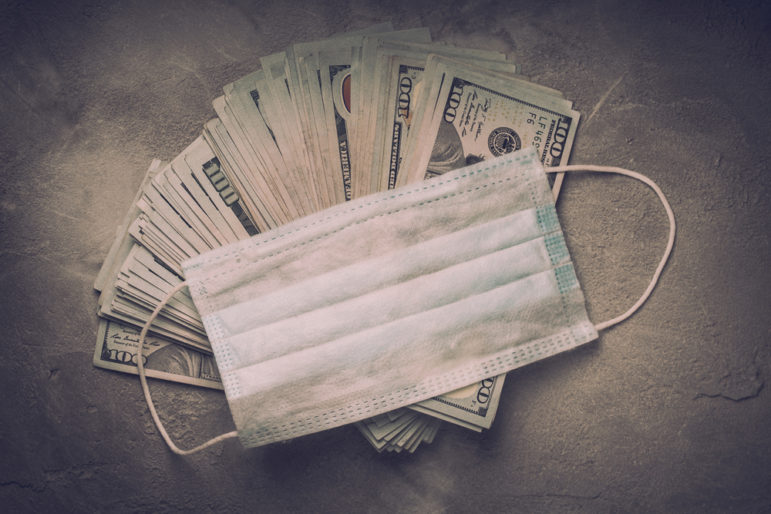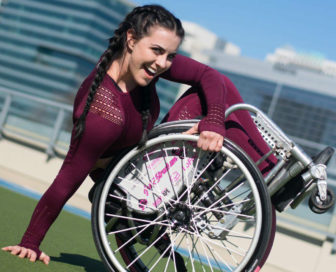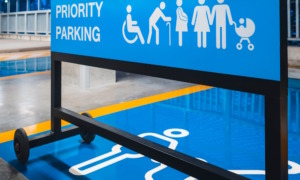
Alan Sau/Shutterstock
.
It seems like every day experts have new opinions on how the economy is being affected by COVID-19. Today alone, I’ve read two articles with very different views. One article, by NPR, said the reopening of states is not enough to help the economy, while another from CBS News said Wall Street experts think the economy is going to bounce back sooner than people expect.

Deandra Mouzon
The economy relies on several factors to do well, including consumer spending and the employment rate. To increase consumer spending, the government sent stimulus checks to most Americans in April and has hinted at a second round. This made me wonder how spending has changed for young people who have disabilities.
I think it is fair to say that many of us have amended our spending habits due to the coronavirus outbreak. Personally, I have all but stopped eating out at restaurants. I have also been saving a little money that I would typically spend on gas to get to work.
Jesi Michele Stracham, a 28-year-old who lives in Charlotte, N.C., is the director of the Wheel With Me Foundation. As someone who lives with spinal cord injury, she works through the foundation to help others like herself regain their independence and adapt to a new way of life. Since the start of COVID-19, she has had some extra money to cover the cost of some things she wasn’t able to cover before.
“Since COVID-19 began, I have spent money on a lot of groceries,” Stracham said. “Because I stopped spending money on travel, I was able to put some extra funds toward paying off a couple of medical bills.” Beyond that, she said being home has really forced her to self-evaluate.

Jesi Michele Stracham
“For me, there were a few really dark weeks as I spent a lot of quality time with myself,” she said. “Quickly, I was made aware of some qualities that could really improve. Not everyone can recognize why they are struggling with their emotions to pull themselves out of depression. I believe this is a huge issue among all individuals during COVID-19. The lack of interpersonal relationship[s] and contact didn’t help, either.”
Governments of many other countries have provided some type of financial assistance to help citizens who have been affected by the pandemic. Kian Hall, who uses the pronouns they/them, is 26 and lives in Shepparton, Australia. They said the assistance has helped and now they have more money to spend on the things they want.
“Due to easing of requirements allowing me to manage applying for government financial assistance, I have ended up in a position of having a lot more money than I did prior to the lockdown,” Hall said. “I’ve been buying comfort items, for myself and for my loved ones who I can’t support in person through this stressful time. I’ve also booked in with expensive specialist doctors, and begun an expensive treatment that I hadn’t been able to afford earlier. I worry whether I’ll be able to afford it after lockdown eases and the additional government support ends, but at least now I can try it and see if it will help me.”

Kian Hall
Hall lives with several disabilities, including hypermobile Ehlers-Danlos syndrome, gastroparesis and costochondritis. They are also under investigation for the diagnosis of Mast Cell Activation Syndrome, Postural Tachycardia Syndrome and others. They worry about how other people with disabilities are coping.
“I think the ways disabled youth have been affected vary depending on where in the world they are, but the anxiety is shared,” Hall said. “Other than my asthma, I’m unlikely to be at a heightened risk from COVID-19, but every day I sit with the anxiety of the community. I worry for my immune-compromised friends, locally, but especially globally.”
As a community, people who live with disabilities already battle higher rates of unemployment. With the ongoing reality of the coronavirus and its impact on the economy, I think it is important to understand the financial strain that things like medical equipment and at-home care causes them. Additional income and assistance can make a world of difference to people who spend so much on medical necessities.
If you would like to contribute to this column and share your story about life during quarantine with a disabled youth, email me at Deandra@csjournalism.org.
Deandra Mouzon is a Georgia-based journalist who received a B.A. in journalism from CUNY’s York College. Currently she is working on a publication about youth with disabilities.































